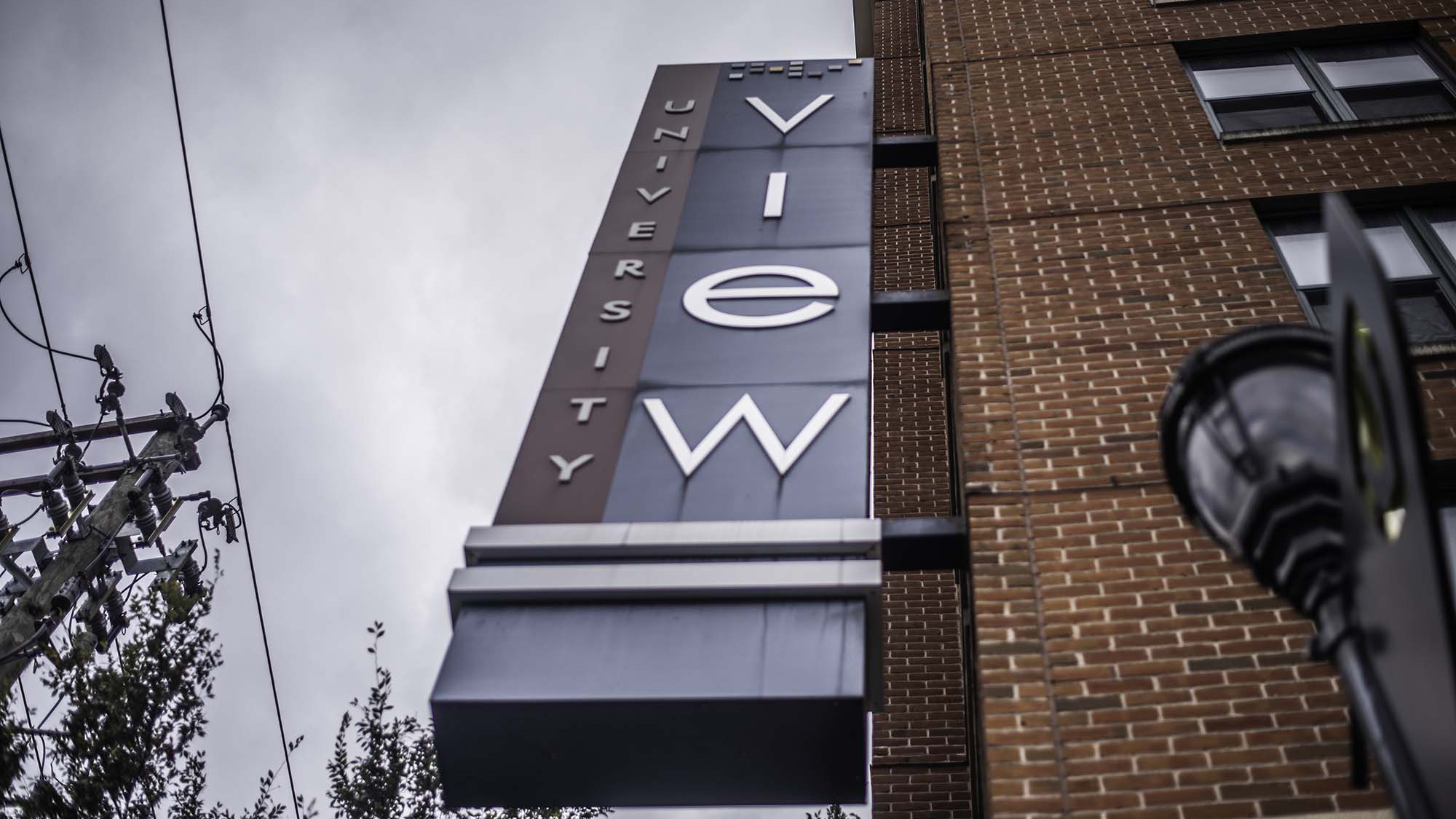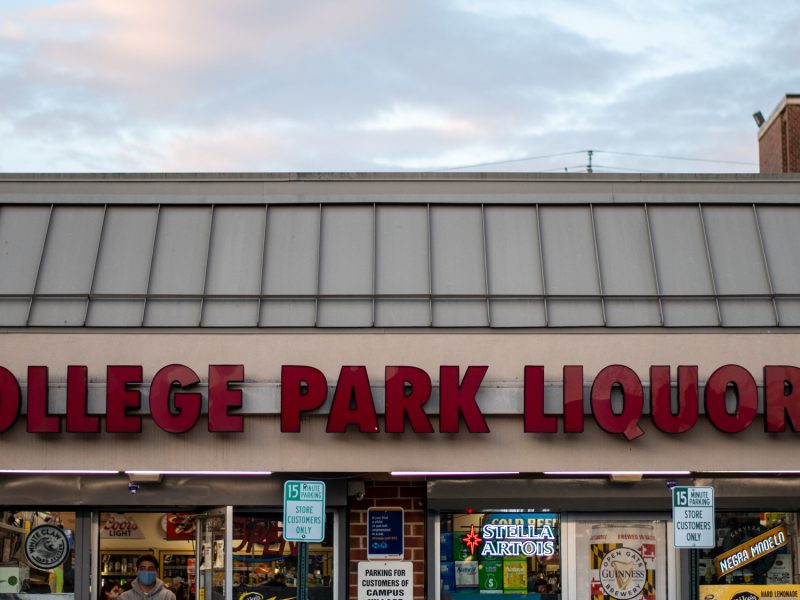When most people prepare for job interviews, they worry about getting blindsided by quirky questions. But leading up to a job interview this fall, Leila Bouhussein had a different concern: She worried her glitchy internet connection in her Terrapin Row apartment would act up and she’d be kicked out of the Zoom meeting before it was over.
It turned out her concerns were well founded. Just as the interview was wrapping up, her Wi-Fi cut out, leaving her to call into the Zoom meeting for the last few minutes. And even though everything worked out in the end, she was irritated.
“It’s disappointing because we pay a ridiculous amount of money,” said Bouhussein, a senior international business and supply chain management major at the University of Maryland. “They claim they have all of these things that they’re offering, but they can’t even give students in a virtual environment internet that doesn’t cut out.”
With classes online and many working from home, shoddy internet access isn’t just causing issues for marginalized communities and students living in rural areas: It has also become a struggle for those paying upward of $1,000 a month for housing within a mile of this university’s campus.
Students living in the University View, The Varsity and Terrapin Row say the Wi-Fi in their apartments has been unreliable over the past few months — something that would be annoying in normal times, but now is all the more problematic, considering all undergraduate classes at this university will be held solely online for the rest of the semester.
This is Bouhussein’s third year living in her Terrapin Row apartment. One of her roommates submitted a maintenance request when they first noticed the slow internet speed. But even after a technician checked the Wi-Fi router, nothing changed.
Since then, Bouhussein has tried using her phone’s hotspot and even built her work schedule around when the Wi-Fi was best. Now, she and her roommates have started using an ethernet adapter and cable when they have important meetings.
Neither Terrapin Row nor its management company, B.HOM Student Living, responded to a request for comment.
Senior computer science majors and Varsity roommates Matthew Graber and Matthew Vorsteg have also turned to using ethernet connections after experiencing issues with the Wi-Fi in their apartment.
[Amid the pandemic’s uncertainty, UMD students are already looking for next year’s housing]
Last year, Vorsteg said the internet connection was sufficient enough to handle his coursework. But last fall, when he had to repeatedly upload a large file for a computer science project, he found it was faster for him to walk to the front of the Iribe Center and upload it there, even though he wound up having to go back and forth about five times.
“Speed is an issue. Reliability is an issue. It’ll just disconnect and go down for like, 15, 20 minutes when you’re doing something important,” he said.
Vorsteg is also concerned about how the Wi-Fi networks are not password protected. However, Graber doesn’t think the internet is more unreliable than previous semesters. Last fall, the internet at The Varsity went out for almost an entire weekend, he remembers.
“The apartments around here have a reputation for being very cheap on these sorts of things,” Graber said. “It feels like you just kind of have to get used to it and suck it up, which kind of sucks.”
Junior aerospace engineering and physics major Ezra Bregin has also had his fair share of internet problems while living at The Varsity.
After resorting to using his phone’s hotspot and depleting all 40 gigabytes, he purchased a router and noticed a substantial improvement in internet speed — it jumped from two megabits per second to 100.
Still, Bregin can’t use The Varsity’s study rooms because there are no ports for routers, and the internet is too slow.
In an email, the apartment wrote it is aware of connection issues and is “actively working with our provider to make improvements.” The Varsity did not respond to an immediate request for more details about those improvements, or provide the name of the team member who responded to the inquiry.
Next door to The Varsity, University View residents lost all internet on the afternoon of Nov. 10.
That day, John Slattery was running up on a 3 p.m. deadline for work. He thought about going to Starbucks or even making the 45-minute drive to his home in Annapolis, Maryland, to get connected to the internet.
“I didn’t know where to go,” said Slattery, who graduated from the business school with an information systems degree in May.
In the end, though, he just gave his boss a heads-up that he had lost internet connection and stayed put in his apartment. The internet took a little over an hour to come back, he said.
While he has had internet issues in his apartment before — the internet was especially slow the first few months after he moved in — this was the first time he completely lost connection. Since then, things have yet to improve for Slattery, who uses an ethernet cable.
“When the internet went out, I actually thought … this kind of sucks for me, but if I was taking an exam, I have no idea what I would do,” he said.
[UMD, Towson tenants join Maryland delegates at state house in fight to terminate leases]
Another University View resident, senior American studies major Noah Steinlauf, also uses an ethernet cord. Even so, he still experiences connection issues.
Steinlauf has three classes that require live Zoom meetings, and he usually does not have internet issues during them.
“I’ve been pretty fortunate in that not a lot of my classes have too many tests,” he said. “So, if the internet goes out, it’s not a catastrophe.”
The on-site management team at the apartment has told residents to call the internet provider, Single Digits, about any issues that arise. But some residents said the company didn’t follow up with them after there were no available appointments when they made their tickets.
Since the shift from in-person to online learning, University View residents have been using more bandwidth than usual and, as a result, have experienced slower connections, according to Chris Spadone, director of resident internet services for The Scion Group, which manages the University View and other properties nationwide.
He added the University View already had bandwidth upgrades planned for 2021 that were accelerated in response to increased usage and feedback from residents. These upgrades will result in faster and more reliable connectivity for residents, Spadone wrote.
But as residents await upgrades, they continue to undergo connection difficulties.
Steinlauf, whose rent is around $1,300 a month, said that part of the reason the University View can get away with its shortcomings is because of its central location and proximity to the campus. But he says that isn’t enough.
“I’m not happy with the amount I’m paying with what I get,” he said.



